My kids started their music journey at four years old in a professional music school with a youth education program. My elder one is in year five, and my younger one is in year 4. They both spend 5 hours every week in the music school. The music school offers primary and middle school education at their location, meaning you can select (and be selected) a professional music career from 11 years old. We were asked several times if we would like to join the school when kids reach their age, but my answer is no. I do not want to send my kids to professional music school in their primary or middle school age. They can freely choose whether they would like to go to a music college after high school.
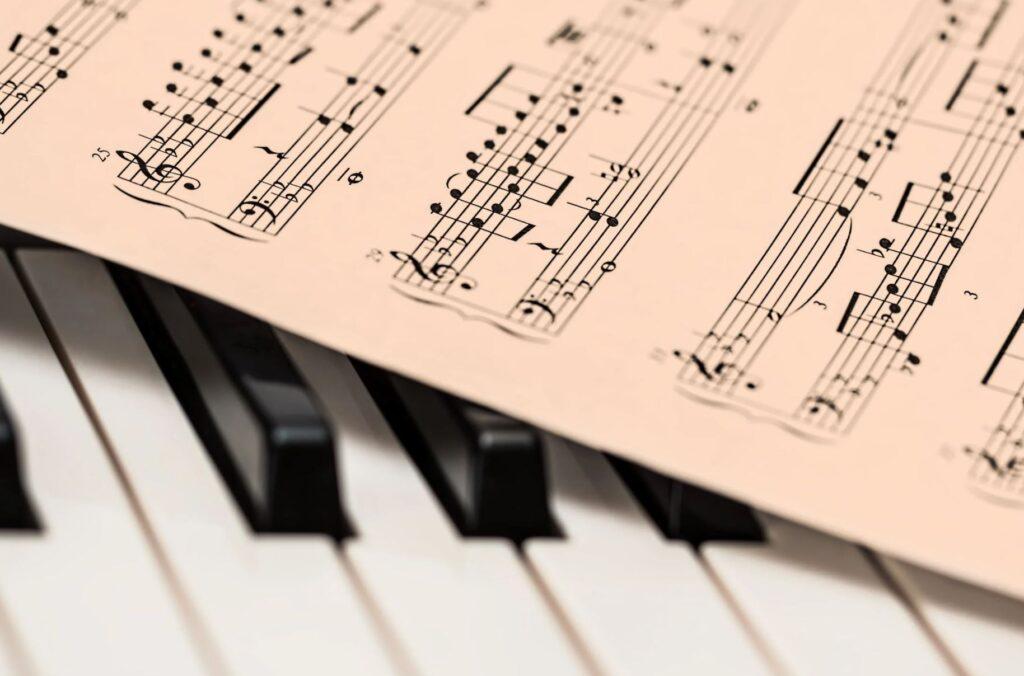
Table of Contents
Personal Disclaimer
My view comes from personal experience and discussions with my kids, including checking their interests, talents, and family priorities. On top of that, I observed Mark’s life as a senior student.
Related Reading:
- Being Guest Parents for a Dutch Teenager – episode 1
- 10 Benefits and Challenges of Theatre Lessons for Kids (Age 5-12)
- 3 Criteria to Choose Extracurricular Activities For Young Schoolers
- 10 Best Extracurricular Activities For Young Schoolers
- Room Parent Feedback – Parents Involvement in Primary School
- 9 Musical Instruments for Kids to Start
- 10 Benefits for Kids to Learn Musical Instruments
Advantages of Going to Music School at A Young Age
Of course, there are always pros and cons behind one decision. Sending kids to a professional full-time music school has many advantages.
- Musical Skill Development: Full-time musical schools often offer intensive training, which can significantly enhance your kid’s musical abilities, including instrument proficiency and vocal skills.
- Passion and Dedication: If your kids are passionate or have a musical talent, a musical school can provide an environment where they can fully immerse themselves in their passion, potentially leading to more remarkable dedication and commitment.
- Exposure to a Variety of Musical Genres: Your child will likely have the opportunity to explore different musical genres and styles, broadening their musical horizons.
- Professional Instruction: These schools often employ experienced instructors who can provide high-quality guidance and training, accelerating your child’s progress.
- Performance Opportunities: Musical schools frequently offer chances for students to perform in front of audiences, which can boost confidence and stage presence.
- Networking: Your child can connect with other young musicians with similar interests, potentially forming friendships and musical collaborations.
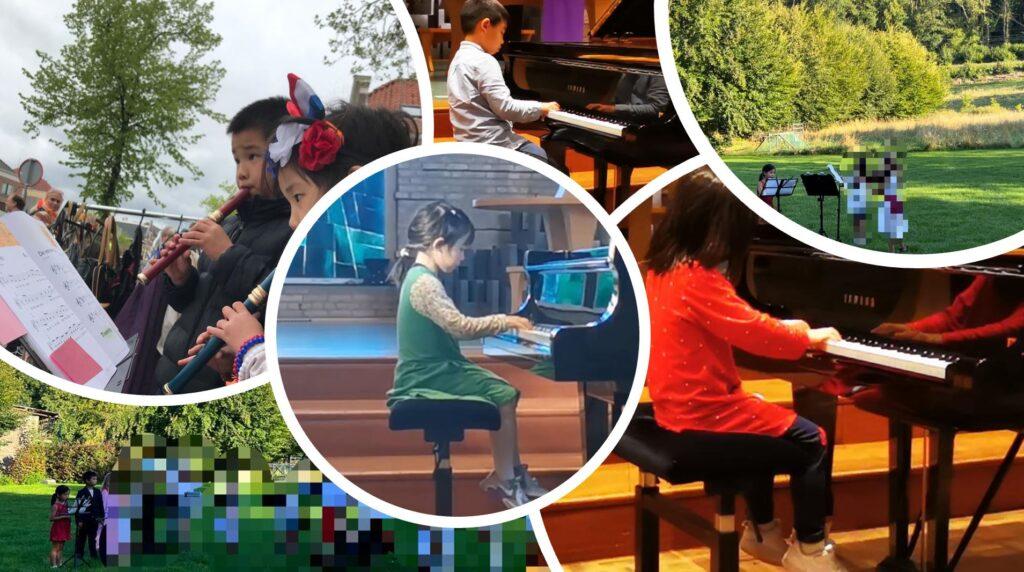
Then Why I Say No?
Before I had Mark staying with us, I was pretty open about the topic, especially for my younger one, who loves dance and music. However, by observing Mark’s daily life, my opinion has changed, and here are the reasons. Some are personal, and I am sure no one will tell you.
1. Intensive Schedule:
Your life will be only two things left: music (or dance) and study. For example, Mark’s school schedule starts daily from 9 a.m. to 6 p.m. From 9 a.m. to 2 p.m., it is the typical high school class. It is a dance class from 2 p.m. to 6 p.m., one after the other, modern, commentary, jazz, ballet, etc. Three out of five days, he has additional things after 6 p.m., either rehearsal for a show, a new dance audition, a master class, or watching professionals’ rehearsals.
The rigorous schedule is physically and mentally demanding for a kid or teen, potentially leading to stress.
Before Mark came, my kids were picturing chatting with him at dinner and playing or reading together after dinner. But in most cases, we have to leave a plate in the microwave, and he eats whenever he returns, mostly at 9 p.m. or after.

2. Limited Time for Other Activities
The intense focus on music or dance leaves less time for other essential aspects of childhood, such as playdates, socializing, sports, or family time. This lack of balance can hinder their overall development.
You would say, hey, there are weekends still! Mark has to train on Saturday (10 a.m. to 2 p.m.) and then back to his own home. Mark’s mother told us that he gets exhausted after the training and only sleeps on the weekend, even not playing games.
Related Reading:
- Why Friendship is Important for Teenagers – 6 Must-Know Reasons
- Raise a Child in the U.S. and Netherlands in 2022 – the Average Cost Comparison ($300k vs $100k)
- How Long to Practice Musical Instrument Per Week for Kids?
3. Impact Social Life
There are two sides to social life’s impact: you spend a long time together with your music or dance classmates. Therefore, Mark did not have enough time to play with his old friends anymore. However, the gender ratio in music or dance schools is quite extensive. Taking Mark as an example, there are 15 teenagers in his class, with five boys and ten girls. On one side, you get friends who share the same interests, passions, and lifestyles. Conversely, you are less exposed to a regular school’s diversity.
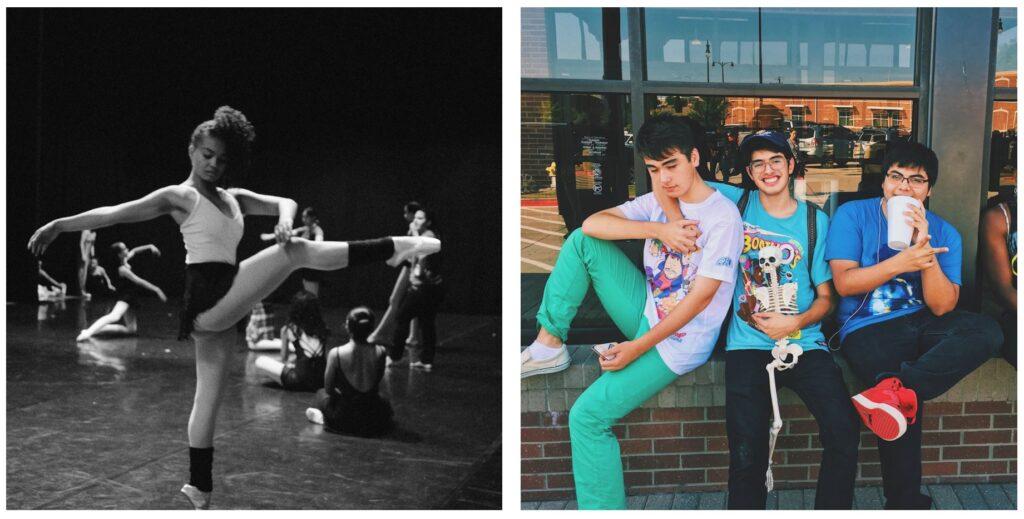
4. Academic Challenges
I knew many studies show that music or dance can enhance academic studies. In our prestigious music school, kids have to follow the regular curriculum as high level primary or middle school. The idea is they will not miss the academic side at all.
With all due respect, I do not agree!
The simple reason is that they did not emphasize the academic side enough. Taking Mark as an example, at least once per week, he does not have to arrive at school at 9 a.m. because the teacher is sick, so class is canceled. He is the only one or two selected subjects for several courses. He needs to choose 8 to 9 courses in regular high school, but with professional music or dance school, you can deduct 2 or 3 as you are doing professional training. They also struggle to keep up with their schoolwork, potentially leading to lower academic performance.
You may ask, do you still use the chemical knowledge you learned from middle school? Maybe not, but I think learning the basics of many subjects is essential.
So overall, balancing a full-time musical school with regular academics can be challenging, potentially impacting your child’s grades and overall educational experience.

5. Financial Costs And Family Support
Many of you have echoed my opinion on the 360 euros/month. Thanks very much for your support and opinion. Let’s calculate a little bit on the cost side. I pay 2,500 euros per year for my kid’s tuition fee. The detailed information is listed here.
Compared with regular high schools, these schools are expensive already. However, there are other associated costs, such as instrument and costume costs. If Mark decides to rent a room later, the market price is around 900 euros per month. A music student costs at least 1300 euros per month by just a rough calculation. If you live close by, the cost is lower, but if you have to rent a place or some students come out of Europe, your cost goes up to the roof. These costs can put a significant financial strain on families, and it’s crucial to assess whether the investment aligns with your family’s budget and priorities.
Besides the financial part, some kids also have solo performances, so it is subject to the parents to drive and pick up their kids, which means, on many weekends, you are a driver and cannot rest for years.
Related Reading:
- Group or Private Music Lesson: Which One to Choose?
- The Cost Overview of Learning Music
- Teach Teens About Money (including credit card and mobile app)

6. Emphasis on Appearance Due to the Professional
Some people think that intense musical training can create a competitive atmosphere, but I do not think it is evident during the primary school or middle school period. But I do notice that kids are highly focused on their outlook, partly because they are teenagers. The other part is the professional. They were selected by hair color, skin color, and height during the audition to see what was best for the performance. For example, the two persons should be similar in size for the duet.
In many performing arts, including music, appearances can play a role in casting and ensemble selection. This practice is often not about discrimination but about creating a visually cohesive and aesthetically pleasing performance. It ensures that the performers sound tremendous and look harmonious on stage together.
Placing too much emphasis on teenagers’ outlooks or physical attributes is not a good idea. It can bring many potential consequences and challenges for young musicians.

7. Limited University Opportunities
While musical training is valuable, it’s essential to acknowledge that not all students will pursue a music career. As we discussed before, full-time musical schools may not provide a well-rounded education that prepares students for alternative career paths to ensure that your kids have access to a diverse and comprehensive education to keep their options open.
Some top talented students succeed in either professional careers or transfer to other professionals. However, most students continued in music university or started working in the music or dance industry.
Some Ugly Trues
1. Worrying Industry Outlook
The U.S. Bureau of Labor Statistics estimates that there are 173,500 jobs for musicians and singers in the U.S., with a median hourly wage of $39.14 in May 2022. Employment of musicians and singers is projected to show little or no change from 2022 to 2032.
Despite limited employment growth, most of those openings are expected to result from the need to replace workers who transfer to different occupations or exit the labor force, such as to retire, —meaning that opportunities are contracting, not expanding.
Wikipedia lists 170 colleges and universities in the U.S. with music programs. Some are music institutions. Others are more prominent universities with smaller music departments. If the average number of new music degrees minted by each college is 250 per year, that’s 42,500 music graduates created yearly. The market is saturated with as many as ten times the number of musicians that the market demands. This estimate only includes musicians who graduated from music programs. Similar to dancing and even with a lower hourly rate of
$22.62 per hour.
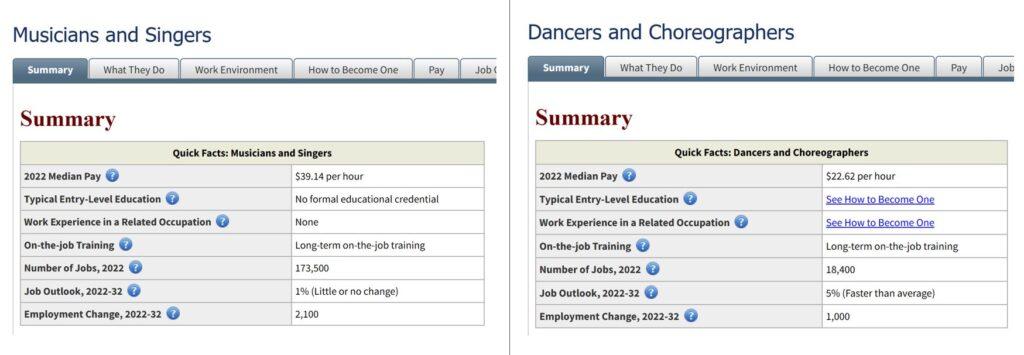
2. Winner Takes All Industry
Music or dancing is a winner-takes-all profession. Because the amount of music the world will financially support is drastically lower than the amount of music people desire to make, and because music can be duplicated for free and played anywhere by anyone, the value of the commodity of music is under constant downward pressure, especially with the A.I. revolution. If your eyes focus on the success of a few famous and top players in the area, it is promising, but how is your kids’ chance? Moreover, it cost time to do audition and trial performance, the lower you are in the chain, the longer you have to wait.
3. Performance is a Youth Career
There is another paradox facing potential music or dance students. Success in music demands a high degree of skill, typically requires years of dedicated practice and training, and beginning very young.
However, unlike many other professions where experience accrues over time, the peak of a musician’s or dancer’s career often occurs at a relatively young age due to the physical and technical prowess that are typically at their prime during youth. The competition can be fierce, and young artists may need to establish themselves quickly to secure opportunities.
Moreover, due to the physical demands of performance and the intense competition, many musicians and dancers experience a relatively short career span. Injuries, wear and tear on the body, and changes in the industry can all contribute to a relatively brief window of opportunity for professional success.
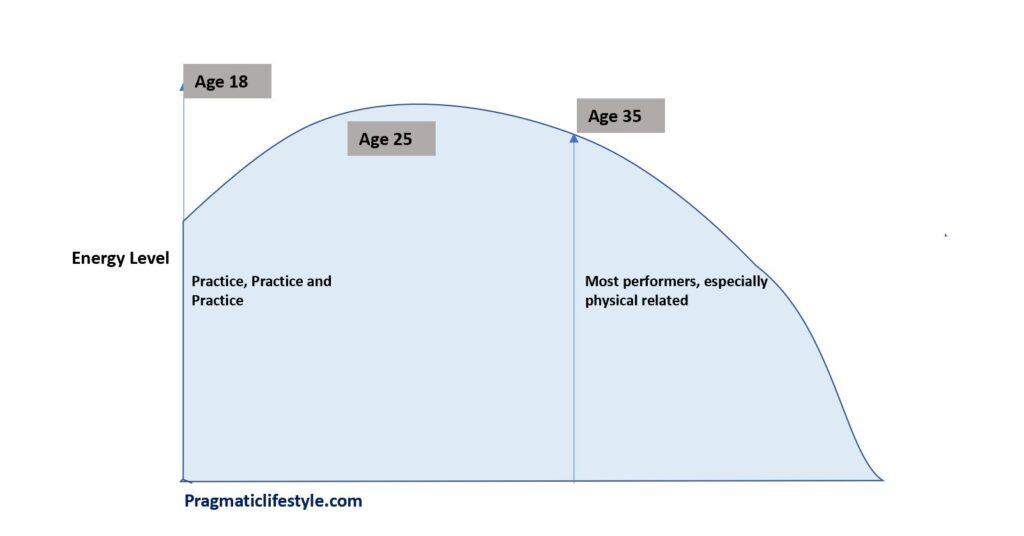
4. The Real Talent Matters
Do your kids have talent? Many parents will say yes, including some coaches. Parental bias is widespread when evaluating their children’s talents and abilities. It’s natural for parents to want the best for their children and to be proud of their accomplishments. All encouragement and support can boost their kids’ self-esteem and confidence.
However, the bias can cloud objectivity when assessing the true talent of their kids. This bias may lead parents to overestimate their child’s abilities, potentially creating unrealistic expectations. During my MBA, one of the cohorts worked for the Olympic athletes’ assessment team. While discussing, he said the top talent cannot be hidden. It is outstanding and noticeable that everyone will know it. It is probably not genuine if only a few people recognize the talent.
By observing my two kids, I see they have musical talent, e.g., good memory of notes and rhythm control. They are good students but not talented enough to be outstanding. When your level is low, you can compensate by practicing. For example, for one piece of music, someone uses 1 hour to practice and may only need 15 minutes to reach the same results. But you can reach the same level if you put in the effort. When everyone is dedicated to the professional road, each of you is practicing 6 hours per day. The talent is playing a much more critical role.
Related Reading:
- Gifted Child in Family, the Effort Behind the Blessing
- 8 Type of Intelligence – Every Kid is Gifted
- 6 Signs For a Musically Gifted Kids
Questions you should discuss with your kids
- Do you want to be a professional musician? If so, how much do you want to be and when?
- Do you have other interests that you would like to do?
- How much do you love playing your instrument? How much do you love playing in groups?
- Would it be a dream for you to travel the world playing music?
- You want to be a professional musician for at least part of your life
- You’re okay that the music profession will not guarantee you an income
Final Thoughts from Pragmatic Lifestyle – How Can You Make the Decision?
Ultimately, your own family decision should based on your child’s passion for music, their ability to handle the demands of a full-time musical school, and your family’s values and resources. It’s crucial to weigh these disadvantages against the potential benefits and to have open and honest discussions with your child about their desires and comfort level with the demands of such a program. Additionally, consulting with educators, counselors, and other parents with experience with musical education can provide valuable insights into whether this path suits your child. Not everything is an economic equation, a little bit similar to the question “do you want to have kids?”. There are more factors in life happiness than career and money.
It’s important to remember that not every child will exhibit prodigious musical talent from a very young age. Many accomplished musicians began their musical journeys with a strong interest and dedication to learning and practicing over time. It’s also essential to support your child’s musical interests without putting undue pressure on them to excel or meet specific expectations. Encourage a love of music, exploration, and growth in a nurturing and supportive environment.
This is my personal opinion and judgement so far. Happy to discuss with you!


2 Comments
Comments are closed.